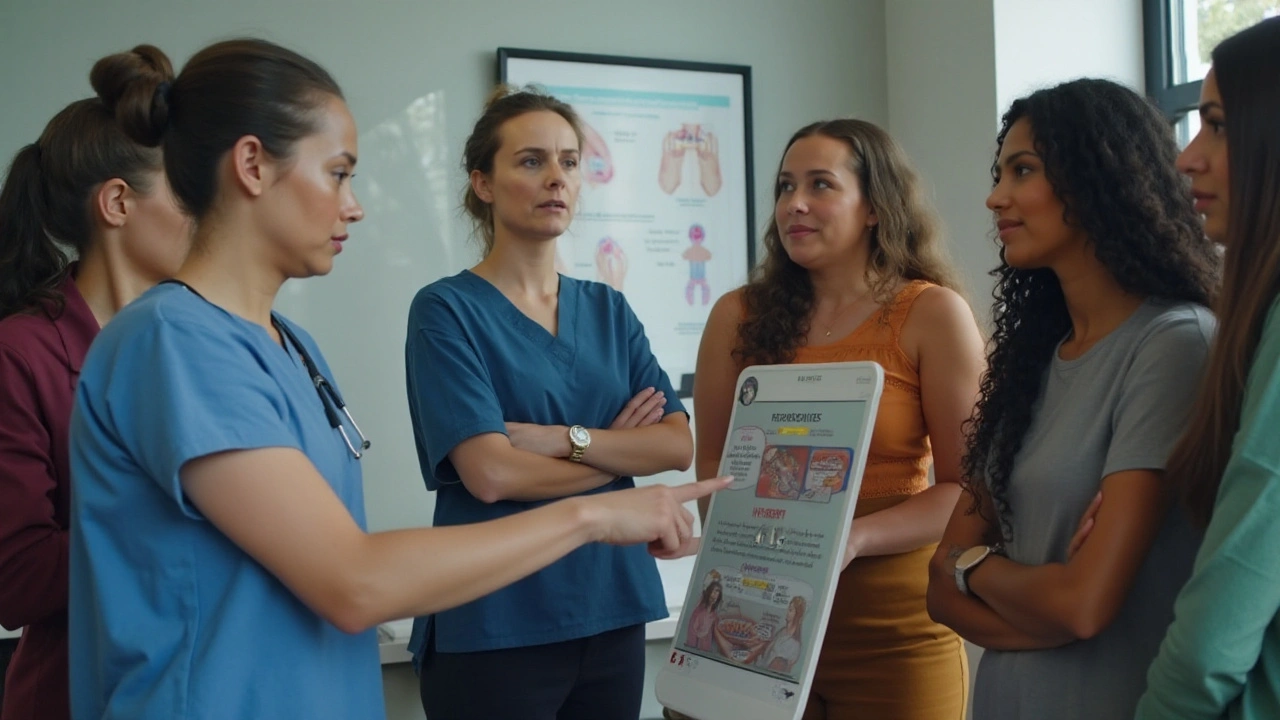How to Prevent Trichomoniasis: Straightforward Steps for Real Results
Think trichomoniasis isn’t a big deal? It’s actually the most common curable STI, yet a lot of people barely talk about it. The problem: most people don’t know they’re infected because symptoms can be mild or even absent. That makes prevention your best weapon.
So, how does trichomoniasis spread? It's almost always passed during sexual activity—vaginal, oral, and even sometimes anal. The main risk factors are having unprotected sex, multiple sexual partners, or a partner who isn’t getting treatment. Condoms reduce the risk a lot, but most folks don’t use them every time. Consistency matters more than you think.
If you’re trying to avoid trich, your first move is simple: always use condoms or dental dams for any kind of sex. People often skip protection when symptoms aren’t obvious, or with regular partners. But trich can spread from someone who looks and feels completely healthy. Even if you’re in a monogamous relationship, talk openly and both get tested.
Why not just rely on symptoms? Because up to 70% of infected people don’t notice any, making regular STI checks way more important than watching for changes. Women may have unusual vaginal discharge or itching; men rarely get symptoms, but they can still pass the infection. Ask your doctor for a fast test—one swab is often all it takes.
Honest conversations about sexual health are awkward, but they work better than most apps or gadgets. Before having sex with a new partner, swap STI test results and agree on protection. Trust and testing go hand in hand. Trichomoniasis is usually easy to cure with medicine (like metronidazole), but if both partners aren’t treated at the same time, the infection just bounces back.
Some online pharmacies and health sites offer quick trich tests and mail-in kits for privacy, which beats waiting weeks for a doctor’s appointment. Just make sure the site’s legit and they use certified tests. Canada Drug Center and similar sites have lots of info on medication and sexual health.
Alcohol and drugs can make you take risks without realizing it. If you find it hard to use condoms after a few drinks, think ahead—plan, carry protection, and make agreements with partners before the party starts. Don't let the moment rule your choices.
If you’re pregnant, preventing trich is even more crucial. It can cause early births or lower birth weight. Extra STI checks are standard in prenatal care, so talk to your doctor about your chances of exposure and how to stay safe for both you and the baby.
Bottom line: preventing trichomoniasis isn’t about perfect behavior, it’s about consistent, realistic choices—condoms, regular testing, honest talks, and fast treatment if you ever test positive. It keeps you and your partners safer, no matter your relationship status.
Effective Ways to Protect Yourself from Trichomoniasis
by Melissa Kopaczewski Aug 11 2024 9 Medical ConditionsTrichomoniasis is a common sexually transmitted infection, and understanding how to protect yourself is crucial for your health. This article explores what trichomoniasis is, its symptoms, and how it spreads. Learn practical steps to reduce your risk and what to do if you think you may be infected.
READ MORE
